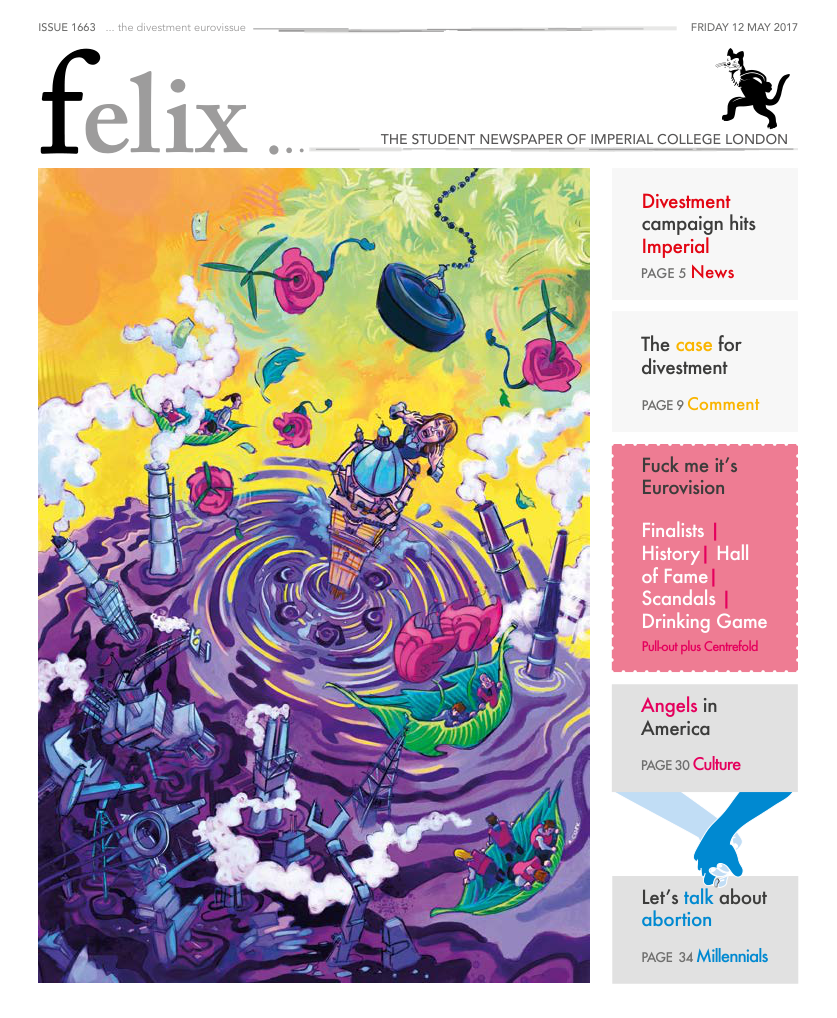Imperial College's white vision for White City
Alex Chaudhri and Kieran Ryan criticise Imperial's expansion in White City

At the end of last term I attended a Union Council meeting. Before the meeting could commence there was an extensive powerpoint presentation about the college’s development in White City, Imperial West, given by Professor Neil Alford (Imperial White City Syndicate).
As someone who has lived in Shepherd’s Bush this last year, I am aware of the rampant gentrification affecting the area, and I am disgusted by Imperial’s involvement in this. The rent increases in W12 have already been forcing people from their homes and increased rates are quickly transforming Shepherd’s Bush’s diverse high street into yet another lifeless row of chain stores.
After showings us slides with a vision of White City campus’s streets lined with chain food shops – Costa, Pret a Manger, etc. – Professor Neil Alford made a ‘joke’, saying that he didn’t know exactly which stores would open up, but knowing the area perhaps there would be a Chicken Cottage. Chuffed with himself, he received rapturous giggles from many of the assembled at the council meeting for a comment that was racist, deeply classist, and exposed the condescending entitlement that festers at all levels of this university.
I was appalled that he could so casually say something so vile. He effortlessly glorified his privilege over the W12 community and was received with affirmation and congratulation by the Union Council and members of the student body. Personally, I expect that Chicken Cottage would neither be able to afford the rent or that there would be a community for it to serve, let alone be allowed to serve.
Already, the goliath Westfield shopping centre sprawls across the east of W12, and is currently expanding. The shopping centre’s architecture is designed to alienate the individual, its clinical structure intended to make rich people feel comfortable and to keep consumerism slick. Behind Westfield is the former BBC Television Centre and Imperial West. The W12 night sky is polka dotted with the red lights of construction cranes.
It’s a picture we see across London (and the country’s high streets). A community, with little political or financial influence, who work hard to make part of the city unique and interesting is recognised for these facts and that area of London is labelled as ‘exciting’. This is, of course, a term used to fetishise and brand an area into a commercial product. Then the developers come in. ‘Exciting’ is an asset to increase financial value, an estate agent’s wet-dream.
Already rent is soaring – mine has gone up 20% on the previous year. Homes are being demolished and replaced by the same uniformity designed to make rich people feel at home. They are designed such that the incoming elite can feel unthreatened by the reality of diverse people having to coexist in a city. The ethnically diverse largely working class community is becoming displaced, marginalised and destroyed, and replaced with rich, white, photo-op favourable professionals. All money made from this venture will be extracted to line the pockets of the economic elite.
One of the first stages of construction, already well underway, is the 35-storey luxury residential tower that is designed to rise high above the neighbourhood and assert Imperial’s dominance. The purpose of the tower is to make money and to show off. It will have 192 flats of which only 12% are “affordable” three-bedroom homes. The law for residential developments is that 36% of homes must fit this category. Imperial is not having to play by the rules. Further to this, these 12% of homes will be solely rented to “key-workers” – people whom the college has chosen to live there. They will not be available to the public. Moreover, Imperial’s definition of “affordable” was a target household income of up to £77,200. In 2012, when the planning application was accepted by Boris Johnson’s Mayor’s Office, £37,900 post-tax income was the 88th percentile in the UK. Clearly the College’s definition of “affordable” was either fraudulent or totally out of touch. In fact, the Mayor’s office deemed this “overpriced” but still gave the go ahead.
Alford then congratulated the College for entering into a group of developers gentrifying the area. He hoped that they would be able to do something like the King’s Cross development. The King’s Cross area is a huge redevelopment area controlled and operated by the King’s Cross Central Partnership Limited. The area is policed by a militia of private security. Potential residents undergo selection before they can even view the mostly multi-million pound properties to rent. Like Imperial, King’s Cross failed to provide the legally required affordable and social housing. In fact, they went further, cancelling some of the construction to build a further 100 luxury homes. In 2012, Corporate Watch dubbed the development “a crude exercise in social engineering”. Their investigation found that people with a history of mental health were being deliberately excluded from social housing and quotas were set for the number of homeless people in the area. The discrimination and exclusivity underpinning these projects oppresses people struggling to survive in our city and creates socially dead spaces. Imperial sets its aspirations high.
Let’s be clear, White City Campus is a thinly veiled money making scheme, the veneer of ‘science’ and ‘education’ are all that is needed to shuffle through their plans. The vast majority of the site will be rented out to private businesses, chain shops and luxury housing.
Regarding the start of construction on the residential tower, Imperial Development Director Graham Stark said that “[the development] demonstrates our long-term commitment to delivering a vibrant mixed use community.” This is a further insight into Imperial’s selfish ignorance of the currently existing community and desire of the developers to cleanse the area of all but the high rent economic elite. Imperial College looks after its own. They have seen an opportunity to make a lot of money and taken it with zero consideration for people’s lives. As strong as this may sound, I am ashamed to be affiliated with the college.








